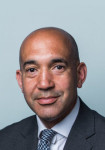The Criminal Justice System (CJS) is in crisis and Sir Brian Leveson asked for bold ideas to rescue it.
A number were proposed including a more proportionate use of the draconian joint enterprise doctrine, but such suggestions don’t get a mention. Instead, we have a repackaging of old reports including the recommendation that judges should take over some jury trials with the hope that this might reduce the backlog of criminal trials.
At a time when hundreds of people have been arrested for peacefully holding up placards protesting about what Amnesty, the OHCHR and many others have called genocide in Palestine, it’s more important than ever that 12 ordinary people dispense justice and hold the state to account. Judges are unrepresentative of society and are appointed by a system that relies on secret soundings – a process that has been held to be unfair but with tweaks has been allowed to continue. Only one per cent of judges are Black and a 2022 report, Racial Bias and Bench, found evidence of institutional racism in the justice system. There’s nothing wrong with the jury system but there’s a hell of a lot wrong with the justice system.
The Leveson report comes in two parts. The second, yet to be circulated, is called the efficiency review. It promises to harness the white heat of technology ‘to drive greater efficiency in both the immediate and long term’. The efficiency review should have come first – transforming the way we do business in the courts. If done properly we wouldn’t even be talking about culling juries.
Meanwhile the elephant in the courtroom is the chronic lack of investment in the CJS and the number of solicitors, barristers and judges that have left or are planning to leave. This has resulted in empty courts; not enough lawyers to prosecute cases and trials being poorly prepared because of pressures of work. Sir Brian recommends increasing credit for pleading guilty to 40 per cent but a criminal is not going to plead guilty if the evidence hasn’t been seized; presented in a compelling way and the trial fixed a few months in advance.
Many of the Leveson reforms are predicated on the basis that more people will plead guilty because they are guilty. However, as a significant number of the allegations in the CJS just shouldn’t be prosecuted, the innocent will, quite rightly, continue to have their trials. To properly revolutionise our CJS we need to reduce the number of pointless and counterproductive prosecutions.
I know submissions were made on how the misuse of the joint enterprise doctrine was clogging up the courts because I along with Professor Quinn made them. I also publicly asked that Sir Brian read APPEAL’s seismic report on the disproportionate use of group prosecutions in the Old Bailey. At a click of a mouse Sir Brian could have prevented some injustice and saved 100s of days of court time if he had just supported Kim Johnson’s Joint Enterprise Bill and the 10 recommendations in Racial Bias and the Bench.
Meanwhile the proposals to outsource some jury trials to a judge and two magistrates is a criminal misuse of scarce resources, unfair and a regressive step. The evidence will be the same and when a point of law is raised, the judge will have to retire with two magistrates. They will take more time to resolve the arguments than just a judge. At the end of a jury trial the judge can start the next case straight away. The Leveson proposal ties the judge up deliberating and then giving reasoned verdicts.
Sir Brian also suggests that so called complex fraud trials should become judge only and supports his proposal by observing that judge only trials operate in Australia and New Zealand. However, recent reports suggest a backlog has occurred over there. Meanwhile over here the Supreme Court has recently criticised the judges that were involved in the complex ‘Libor’ fraud trials as they all got the law wrong. The juries are not the problem.
It’s incorrect to suggest that juries don’t understand so called complex fraud trials. At the end of the day they are simple - as the lawyers often say, ‘follow the money’. Scrapping jury trials for some offences is very much the thin end of a very large wedge which would be used, in years to come, to suggest that, although juries are good, judges are better.
